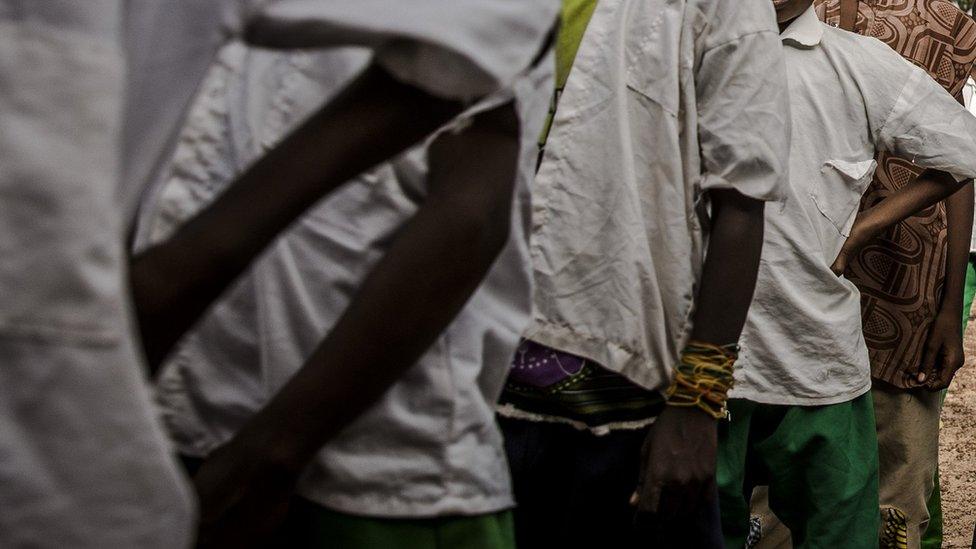Nigeria's Katsina school abduction: Boko Haram shows video 'of seized boys'
- Published
Abdulhadi avoided the mass kidnapping in Nigeria's Katsina school but his twin brother Mustapha was lost in the chaos
A video said to be from the jihadist group Boko Haram shows some of more than 300 Nigerian schoolboys kidnapped last week.
In the video, filmed in a forest, gunmen with their faces covered stand guard over boys, some of whom look no older than 10.
One child is made to issue demands on behalf of the group.
The boys were snatched from a boarding school in the north-western state of Katsina.
The attack was the first of its kind in north-western Nigeria.
Despite the Boko Haram claim that it was behind the abductions, the Nigerian authorities say they were carried out by local gangs connected to the Islamist group.
Boko Haram has been notorious over the last decade for school kidnappings, including in Chibok in 2014, when nearly 300 schoolgirls were seized. Its name loosely translated as "Western education is forbidden".
However, these abductions have until now taken place in the north-east, where Boko Haram is based.
What does the video show?
The six-minute footage - which has not been independently verified - features a boy in the foreground whose clothes and face are dishevelled.
Dozens of children, some of them appearing to be very young, stand in the background, pleading.
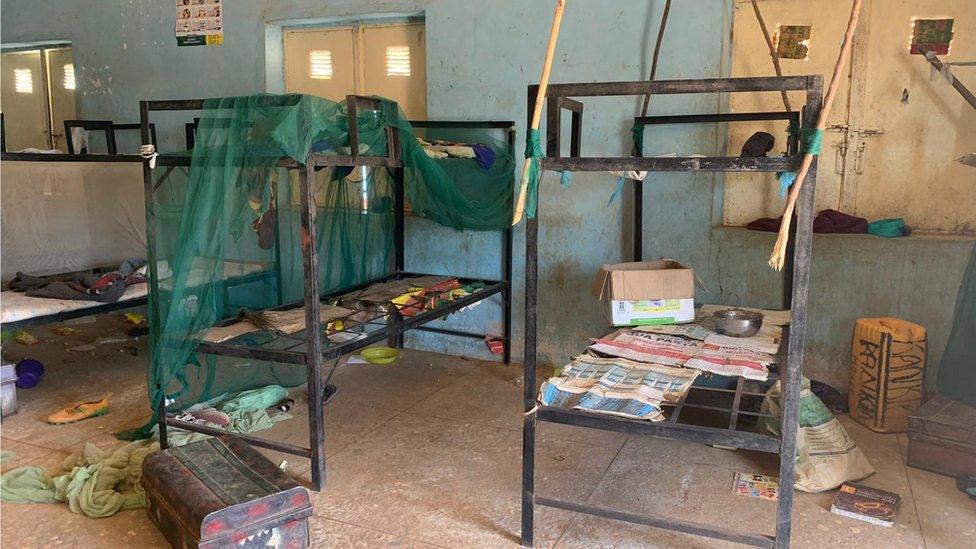
Boko Haram said it had targeted the school in opposition to Western education
In a mix of English and Hausa, the main speaker says they were kidnapped by Boko Haram leader Abubakar Shekau's gang.
He says some of the boys have been killed by Nigerian fighter jets and calls for the closure of schools other than Koranic schools.
He adds that all the government troops who have been sent to help them should be sent back.
At one point his voice appears to break and the other children begin to cry.
It's a distressing watch, BBC Nigeria correspondent Mayeni Jones says.

A further dent in the president's reputation
Analysis by Nduka Orjinmo, BBC News, Lagos
This marks a devastating turn in the war against Islamist insurgency in Nigeria; it all but confirms that militant groups such as Boko Haram have spread into the north-west.
Worsening crimes such as kidnapping and attacks on farming communities had been linked to "bandits" - a loose term for several groups in the vast region which now has to include Islamic insurgents.
There have been warnings in the past that the government's failure to deal with such groups posed a threat and a potential breeding ground for sympathisers of Islamist militancy.
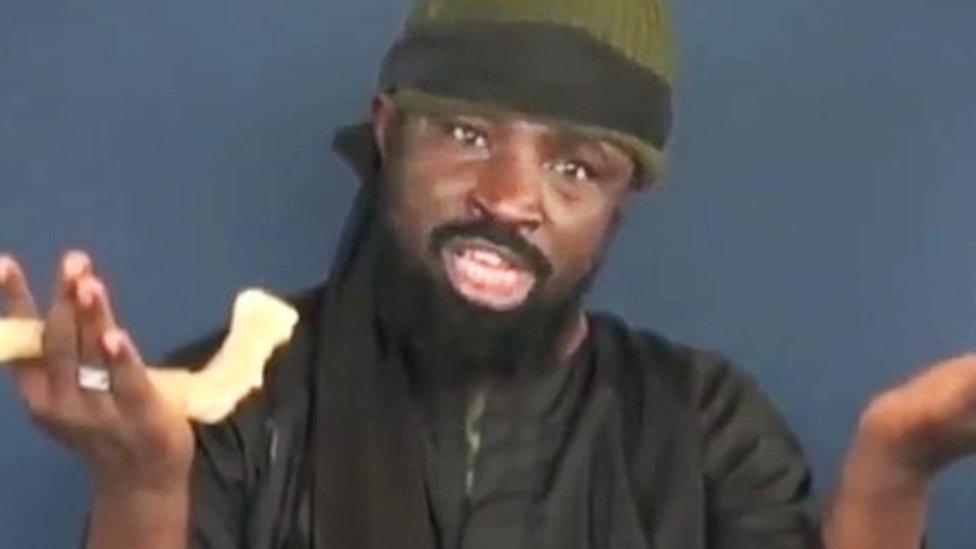
Boko Haram is led by Abubakar Shekau
If the boys are now truly with Boko Haram, then what seemed unimaginable is now ringing true: Islamist militants in Nigeria's north-east spreading west to link up with clusters of other criminal gangs.
The security implications should be worrying, not just for Nigeria but for other countries in the Sahel region, where large swathes of lands are now in the hands of such Islamist insurgents.
This was a video many Nigerians were hoping they would never see again: schoolchildren in the hands of Boko Haram, and - expectedly - many are angry with the worsening security situation under the current government.
People are now waiting to see how President Muhammadu Buhari handles the situation - Boko Haram are likely to use the boys as negotiating pawns. That this happened under an administration that came into power promising better security is a further dent in his reputation as a former military general.

What do the Nigerian authorities say?
The gunmen who kidnapped the schoolboys might have got help from Boko Haram, state Governor Aminu Bello Masari told the BBC's Newsday programme.
His statement comes after the Islamist militant group said it was responsible for the abduction.
But the governor repeated the authorities' view that the attack itself had been carried out by what he termed local bandits.
"One cannot precisely say there is no Boko Haram at all but those who [carried out the attack] are not Boko Haram, are not known to be members of Boko Haram.
"Maybe [they helped] through training or some other means of assistance to the local bandits but all the names we have so far are names of the local bandits," Governor Masari said.
He also told the BBC the security forces had made contact with the kidnappers and had some idea where they were.
But he stressed the authorities would not negotiate with Boko Haram, nor would they agree to paying a ransom.
The jihadist group has waged a brutal insurgency since 2009, mostly in north-eastern Nigeria.
Tens of thousands of people have died and millions have been forced from their homes.



You may be interested in:
Inside abducted Chibok girls' school in Nigeria
- Published28 July 2023
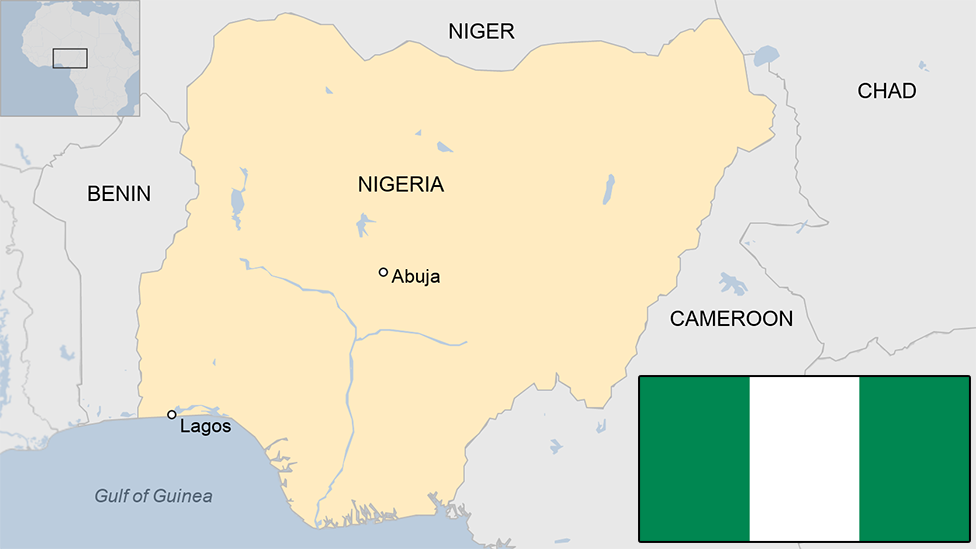
- Published24 November 2016
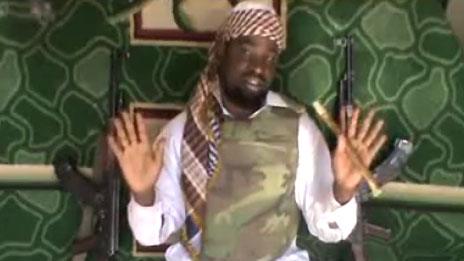
- Published14 December 2020
